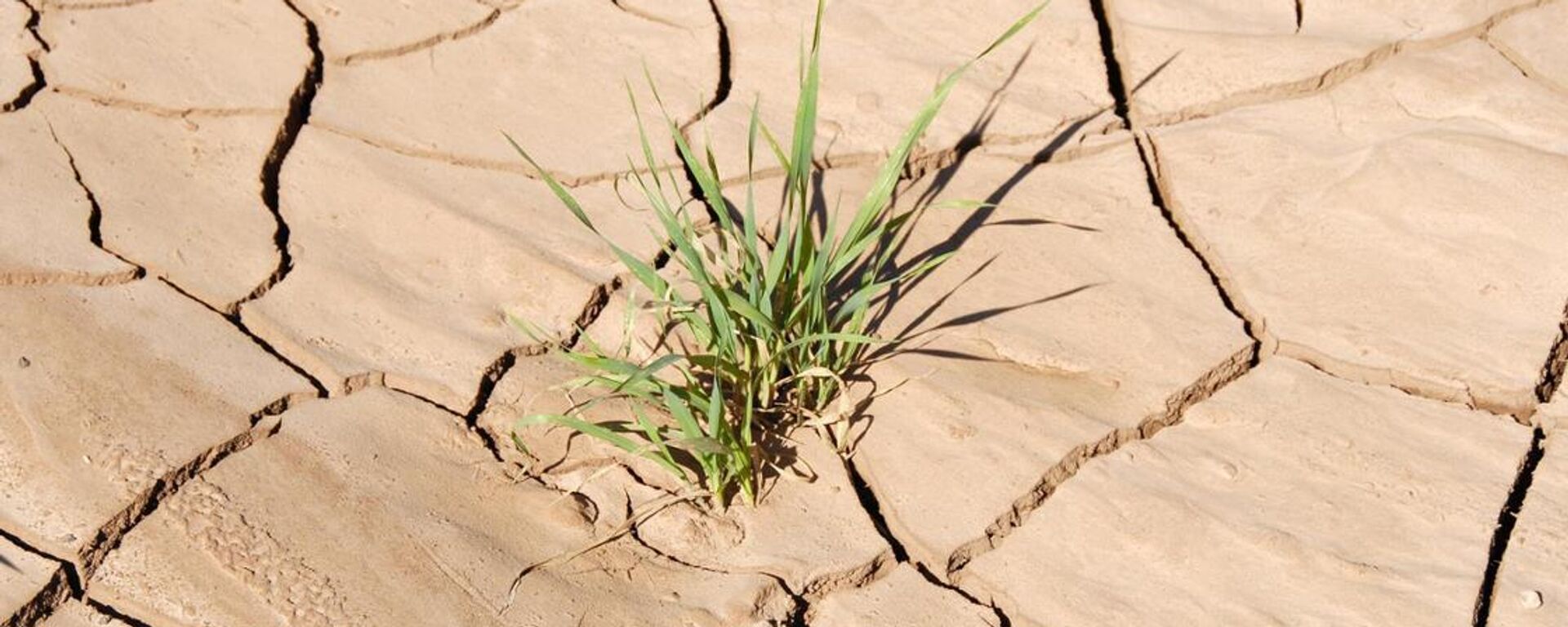https://en.sputniknews.africa/20240711/zimbabwe-lowers-growth-forecast-due-to-severe-drought-impacting-crop-yields-1067455871.html
Zimbabwe Lowers Growth Forecast Due to Severe Drought Impacting Crop Yields
Zimbabwe Lowers Growth Forecast Due to Severe Drought Impacting Crop Yields
Sputnik Africa
In April, the Zimbabwean government declared a national disaster due to a drought triggered by the El Niño climate phenomenon. President Emmerson Mnangagwa... 11.07.2024, Sputnik Africa
2024-07-11T15:17+0200
2024-07-11T15:17+0200
2024-07-11T15:56+0200
sub-saharan africa
zimbabwe
zambia
international monetary fund (imf)
african union (au)
malawi
economy
drought
natural disaster
southern africa
https://cdn1.img.sputniknews.africa/img/07e8/05/08/1066425663_0:160:3072:1888_1920x0_80_0_0_f371d3309cf693b9ff32956ebf3f70a2.jpg
Zimbabwe has downwardly adjusted its economic growth forecast in light of the worst drought in decades affecting Southern Africa, which severely damaged crop yields, as reported by Finance Minister Mthuli Ncube to Reuters on Wednesday. Nevertheless, a growth recovery is anticipated by 2025.The minister announced that the economic growth forecast for Zimbabwe in 2024 has been reduced to 2%, a significant drop from the previously projected 3.5% in November, according to the report. This decline is attributed to an El Niño-induced drought causing widespread crop failures.A recovery in growth to over 5% is expected by 2025, according to Ncube.Ncube also reportedly highlighted that the drought has severely impacted agricultural output, necessitating the importation of 1.4 million tonnes of grain.Zimbabwe is one of the most severely affected countries by the drought in the region, leading to significant reductions in crop yields. Neighboring countries, such as Zambia and Malawi, have declared disaster states in response to the drought.The International Monetary Fund forecasted two weeks ago that Zimbabwe's growth rate would decrease to 2%, a stark decrease from last year's 5.3%.In May, the Zimbabwean government predicted a 72% decline in staple maize production for the 2023/24 season.To combat food insecurity, Zimbabwe received $32 million in drought insurance from an African Union agency last Thursday. Additionally, the government has appealed to international donors for food aid assistance.In May, the UN stated that its aid appeal, known as the United Nations in Zimbabwe Drought Flash Appeal, needs $429.3 million to support nearly 3.1 million people impacted by the drought in 46 districts designated as priorities.Despite this challenge, the country intends to put into orbit its second satellite, ZimSat-2, in November. ZimSat-2 is equipped with advanced sensors and imaging devices, designed to support a range of applications, including mineral exploration, environmental hazard monitoring, and managing droughts and human settlements.
https://en.sputniknews.africa/20240516/over-half-of-zimbabweans-reportedly-will-need-food-aid-amid-drought-1066578713.html
zimbabwe
zambia
malawi
southern africa
Sputnik Africa
feedback@sputniknews.com
+74956456601
MIA „Rossiya Segodnya“
2024
Christina Glazkova
https://cdn1.img.sputniknews.africa/img/07e7/0b/07/1063380906_0:0:673:674_100x100_80_0_0_79628b4d0cd9f29291a57aa13bbf9e7a.jpg
Christina Glazkova
https://cdn1.img.sputniknews.africa/img/07e7/0b/07/1063380906_0:0:673:674_100x100_80_0_0_79628b4d0cd9f29291a57aa13bbf9e7a.jpg
News
en_EN
Sputnik Africa
feedback@sputniknews.com
+74956456601
MIA „Rossiya Segodnya“
Sputnik Africa
feedback@sputniknews.com
+74956456601
MIA „Rossiya Segodnya“
Christina Glazkova
https://cdn1.img.sputniknews.africa/img/07e7/0b/07/1063380906_0:0:673:674_100x100_80_0_0_79628b4d0cd9f29291a57aa13bbf9e7a.jpg
zimbabwe, zambia, international monetary fund (imf), african union (au), malawi, economy, drought, natural disaster, southern africa, emmerson mnangagwa, united nations (un), humanitarian aid , hunger
zimbabwe, zambia, international monetary fund (imf), african union (au), malawi, economy, drought, natural disaster, southern africa, emmerson mnangagwa, united nations (un), humanitarian aid , hunger
Zimbabwe Lowers Growth Forecast Due to Severe Drought Impacting Crop Yields
15:17 11.07.2024 (Updated: 15:56 11.07.2024) Christina Glazkova
Writer / Editor
In April, the Zimbabwean government declared a national disaster due to a drought triggered by the El Niño climate phenomenon. President Emmerson Mnangagwa announced that the country required $2 billion in aid to provide food for millions of people facing hunger.
Zimbabwe has downwardly adjusted its economic growth forecast in light of the worst drought in decades affecting Southern Africa, which severely damaged crop yields, as reported by Finance Minister Mthuli Ncube to Reuters on Wednesday. Nevertheless, a growth recovery is anticipated by 2025.
The minister announced that the economic growth forecast for Zimbabwe in 2024 has been reduced to 2%, a significant drop from the previously projected 3.5% in November, according to the report. This decline is attributed to an El Niño-induced drought causing widespread crop failures.
"We are all downgrading our growth targets for 2024 because of deeper than expected impact on our agriculture, but next year is brighter," Ncube was quoted as saying.
A recovery in growth to over 5% is expected by 2025, according to Ncube.
Ncube also reportedly highlighted that the drought has severely impacted agricultural output, necessitating the importation of 1.4 million tonnes of grain.
Zimbabwe is one of the most severely affected countries by the drought in the region, leading to significant reductions in crop yields. Neighboring countries, such as
Zambia and Malawi, have declared disaster states in response to the drought.
The International Monetary Fund
forecasted two weeks ago that Zimbabwe's growth rate would decrease to 2%, a stark decrease from last year's 5.3%.
In May, the Zimbabwean government
predicted a 72% decline in staple maize production for the 2023/24 season.
To combat food insecurity, Zimbabwe
received $32 million in drought insurance from an African Union agency last Thursday. Additionally, the government has appealed to international donors for food aid assistance.
In May, the UN
stated that its aid appeal, known as the United Nations in Zimbabwe Drought Flash Appeal, needs $429.3 million to support nearly 3.1 million people impacted by the drought in 46 districts designated as priorities.
Despite this challenge, the country
intends to put into orbit its second satellite, ZimSat-2, in November. ZimSat-2 is equipped with advanced sensors and imaging devices, designed to support a range of applications, including mineral exploration, environmental hazard monitoring, and managing droughts and human settlements.



